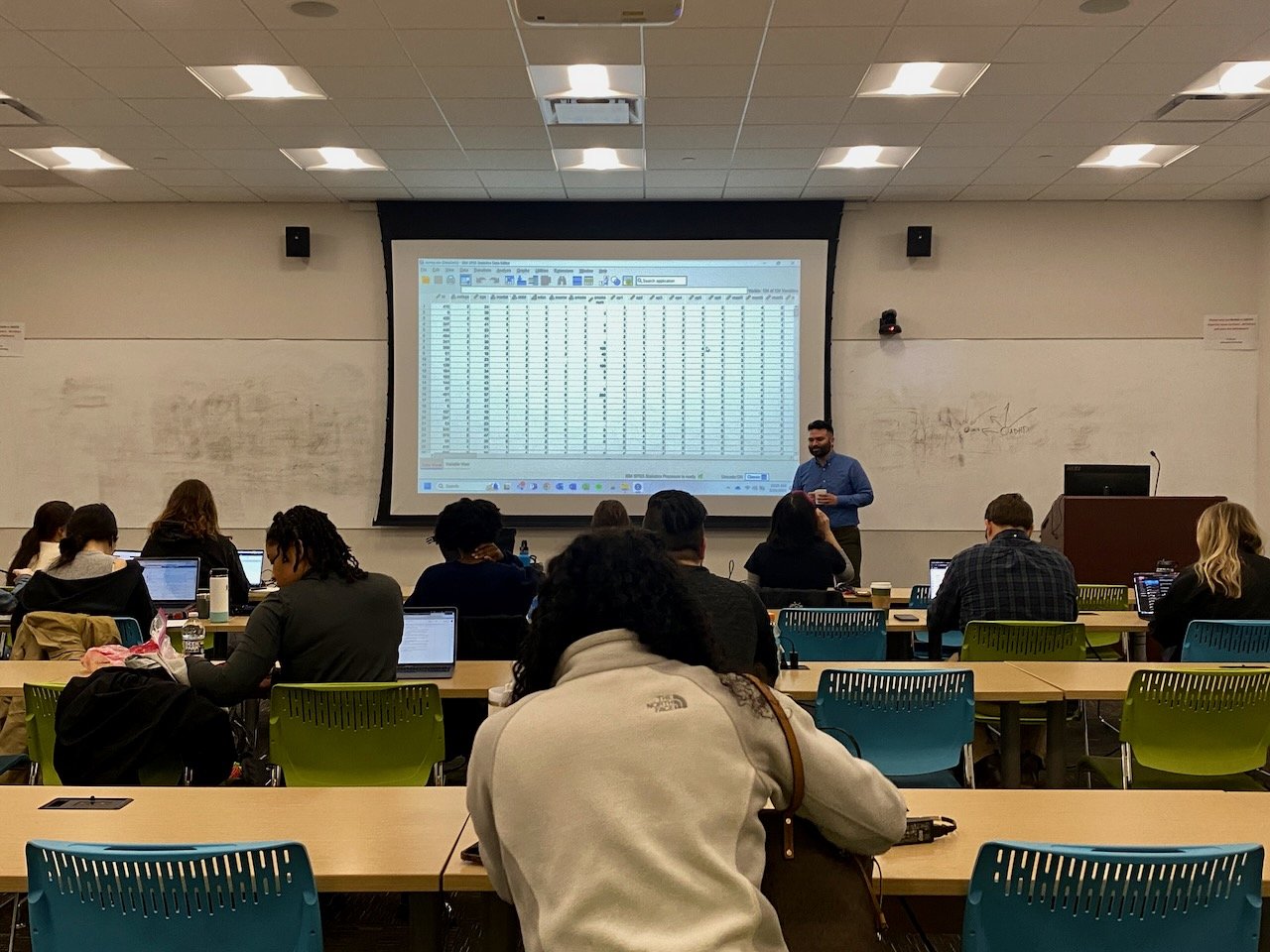Two Professors Tried a Different Approach to Open New Classroom Discussions
Psychology professor John Dimoff instructs a classroom of students in Chatham Eastside. (Mick Stinelli)
Chatham University professors Deanna Hamilton and John Dimoff don’t want their psychology students to operate in silos.
But the courses they teach—positive psychology and addictions, respectively—might seem less than complementary.
“When people hear about addictions, a lot of their presumptions are negative,” Dimoff said.
He said he approaches the subject by examining the factors, such as trauma or pain, that are leading people to addictions, and finding the goals behind those behaviors to help a person learn to control them.
During a summer semester last year, Dimoff and Hamilton took a novel approach to instruction: bringing students from each of their courses together in combined classroom sessions to see how tenets of positive psychology, which focuses on people’s inherent strengths and life purpose, could work together with addictions psychology.
The response from their graduate students was fairly unanimous, Hamilton said. They wanted to see more of it, making suggestions about other courses that could benefit from combined approaches.
“It helped me to think about ways I could incorporate other classes into my work,” said Catherine Axtman, MSCP ’24, who’s set to obtain her Master of Science in Counseling Psychology (MSCP) degree in the fall.
“I see that I use biopsychology all the time, and that also integrates really well with positive psychology and addiction,” she said.
Hamilton said the approach she and Dimoff took was reflective of the values of Chatham’s psychology program, which focuses on holistic approaches to mental health.
“I like modeling for our students that, as colleagues, we appreciate each other’s expertise,” she said.
“It’s an opportunity to give students a taste of why we are passionate to teach the subjects that we teach,” said Dimoff.
The idea began with Dimoff simply wanting to find an opportunity to collaborate with Hamilton, especially considering they were both teaching over the summer.
“It felt like, sometimes, to break from the traditional mold is exciting for students as well,” said Emiko Hunt, PsyD ’26, a third-year graduate student who co-instructed alongside Dimoff.
“Sometimes, it can be difficult to draw people in our profession to addiction work, just because it can be really hard work emotionally,” Hunt said.
Bringing in perspectives and conventions of positive psychology by leaning on Hamilton’s expertise helped each subject “come alive,” Hunt said, and it stimulated discussions among students that went beyond psychology and into social work and equity.
“This was my first official teaching experience,” Hunt said. “I feel like it was such a meaningful and positive one. I feel really lucky to have had a classroom full of really devoted and engaged students who are just as enthusiastic to try something like this as we were.”
And for Axtman, there’s already been opportunities to put this new line of thinking to work at her internship at the University of Pittsburgh’s counseling center, where she’s brought interventions from positive psychology, such as character strengths and self-compassion, into her treatment plans for clients with addictions.
“I think the fact that I had this opportunity to think about addictions and positive psychology together in a classroom setting made it more likely that I was going to use it in a clinical setting,” she said.
Learn more about Chatham University’s Doctor of Psychology in Counseling Psychology and Master of Science in Counseling Psychology degrees.

